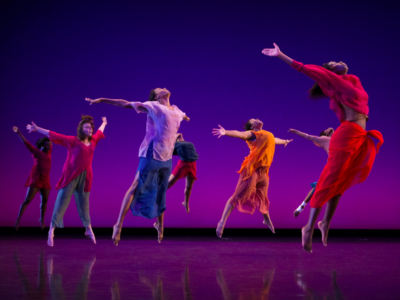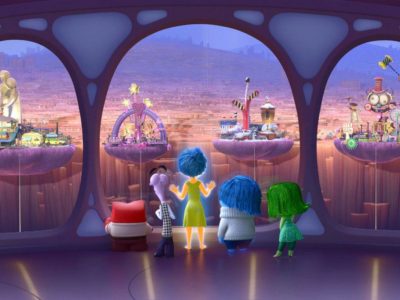When asked “Who inspires you?” many of us immediately recall an influential teacher who shaped our morals and informed us about the world. Yes, while teachers sometimes assign lots of tests and assignments, they undeniably remain the backbone of society. We all watched with joy as Adele sang her beautiful set at her “An Audience with Adele” performance at the London Palladium. Her surprise reunion with her elementary school English teacher warmed the hearts of viewers everywhere. Adele, who cried upon reuniting with the woman who shaped her love for literature, shows us just how much teachers impact their student’s lives. Teachers influence the minds of adolescents every day, introducing their student’s to both the good and ugly parts of our society.
The mighty English teacher possesses the power to alter your perspective without you even knowing.

A child’s encounter with teaching does not begin when the school bell rings, though. From the moment they come into this world, children learn valuable and essential lessons from their parents or guardians.My mom, being one of the most influential teachers in my life, taught me about kindness and sincerity. My lessons ranged from “Make a difference in the world!” to “Oh my GOD Nicole, don’t touch the pan when there’s fire burning underneath!” Like I said, every day you learn something new.
As I entered elementary school, I made connections with many of my teachers. I loved the way they somehow managed to know so much about the world. But any time we got to the math lesson of the day, I successfully tuned out and daydreamed. Numbers felt too strict and failed to tell a story. I liked reading, loved writing and enjoyed hearing about the world’s misgivings during history. But math? Just plain boring.
As I continued through my academic journey, my distaste for mathematics cultivated and grew. I respected and liked my math teachers and sometimes even felt that instant gratification when I got a question right. Still, I felt the pressing urge to close my eyes and sleep every time equations appeared on the smart board.
When I entered English class, though, the possibilities seemed endless.

We could make up stories that belonged completely to us – the characters, the scenarios, the plot. When I found my third-grade notebook, I read my vivid stories about my teacher turning into chocolate and my friends living in the Candy Land game. My teachers introduced us to stories and novels and poems that remained unlike anything I ever read before. As the English classes advanced, I found more and more to love about them.
Seven years ago, 12-year-old Nicole sat in the lunchroom quietly reading To Kill A Mockingbird after the entire seventh grade class got in trouble for talking too loudly. Prompted by the dean to silently take out a book and read, she and her friends all grabbed the novel assigned from class and read ahead before class. A few months and a dozen quiet lunches later, the group whipped out their fresh copies of Shakespeare’s Romeo and Juliet. Seventh grade English by the way… No joke.
My seventh and eighth grade English teacher really set my passion for writing ablaze.

She assigned us advanced and difficult novels that pushed us to find the writers within ourselves. Mediocracy remained unacceptable—she knew the capabilities of her students, and thus challenged them to reach their fullest potential. I remember my mom’s reaction when she found out we’d be reading Shakespeare at 12 years old. “I can’t even read Shakespeare now,” she said.
The fear surrounding Shakespeare’s works felt tangible. The impulse to go on Spark Notes and read No Fear Shakespeare translations felt tempting. But instead, my amazing teacher assigned us roles, and we did all the “hard stuff” in class. We spent a week analyzing the first scene of the play. I read as Juliet. From that point on, I never again felt afraid to tackle a Shakespearean work. In fact, I’m taking a Shakespeare class this semester!
After we finished our reading of Romeo and Juliet, my teacher gave us the opportunity to debate the play’s conclusion. Which character would you blame for the tragic ending? The class jumped at the opportunity to discuss our opinions, fighting about Romeo and Juliet until graduation a year later. Some said Tybalt, others said Romeo and many even declared that the obscure Rosaline should take the blame. Regardless, our teacher gave us the opportunity to formulate a critical opinion despite controversy and express our argument while remaining civil with the rest of the class. I use the skills I learned in her class every single day.
When I enrolled into high school, I hoped and dreamed that my English teachers would possess similar teachings styles to my middle school English teacher.

I felt pleasantly surprised when walking through the doors of the Arts and Humanities building and meeting the influential women who shaped the English Department at Notre Dame Academy. High school English? No picnic either. But my reading and writing skills completely transformed after four years in the English department. We read five books per year, many of which now serve as my favorite books on the shelf. We engaged in multiple guided discussions, which pretty much mirror the style of teaching in my college English classes.
My first high school English teacher eased us into the transition, helping us to get acclimated with high school style writing. Our first ever guided discussion? An in-depth analysis on Disney’s Frozen. Truly one of the most enlightening English classes I ever experienced. As a sophomore I took my favorite class—British Literature—where I got to read books like George Orwell’s 1984 and Charlotte Brontë’s Jane Eyre. My sophomore year teacher gave us so many opportunities to use our creativity, even giving us the opportunity to write an elaborate back story for characters in a poem.
My senior year English teacher particularly influenced me to look at novels, poetry and plays in the context of current societal issues. She selected texts like Toni Morrison’s novel, Song of Solomon and Clint Smith’s poetry book, Counting Descent to introduce us to new perspectives. She also served as the moderator for our political engagement club and ensured that we developed a sound understanding about how literature connects to inequities today. Her class helped me to connect the dots between English class and the greater world, and for that I am forever grateful.
After my four high school years, I felt confident entering college as an English major and continuing to fine tune my writing skills.

Today, my English classes continue to challenge my ideas on social justice issues and encourage me to speak out against injustice. My English professors influence me on a day-to-day basis, creating opportunities for us to engage in taboo and controversial conversations and giving us the chance to write about topics we feel passionate about.
Above all, my lovely English professors truly care about their students. I feel so welcomed in the St. John’s English community. They want the best for their students and will always make themselves available for students in need of help. I can’t wait to continue in my next two years as an English major.
My journey as a writer continues to grow as a Staff Writer for College Magazine. I also work at the Writing Center at St. John’s, channeling my inner English teacher in attempts to help students find their voice in their writing. I love every minute of working there.
The point of all of this? English professors and teachers possess great power within our society.

And so, my dear and beloved English teachers. Thank you for not only shaping me into the student I am today, but the person I am. You not only gave me an enormous amount of confidence in my writing and analyzation skills, but also proved that reading and writing change the world. Thank you for doing what you do. Thank you for believing in me. Even though we may not express our gratitude all the time, your students greatly appreciate you.



















